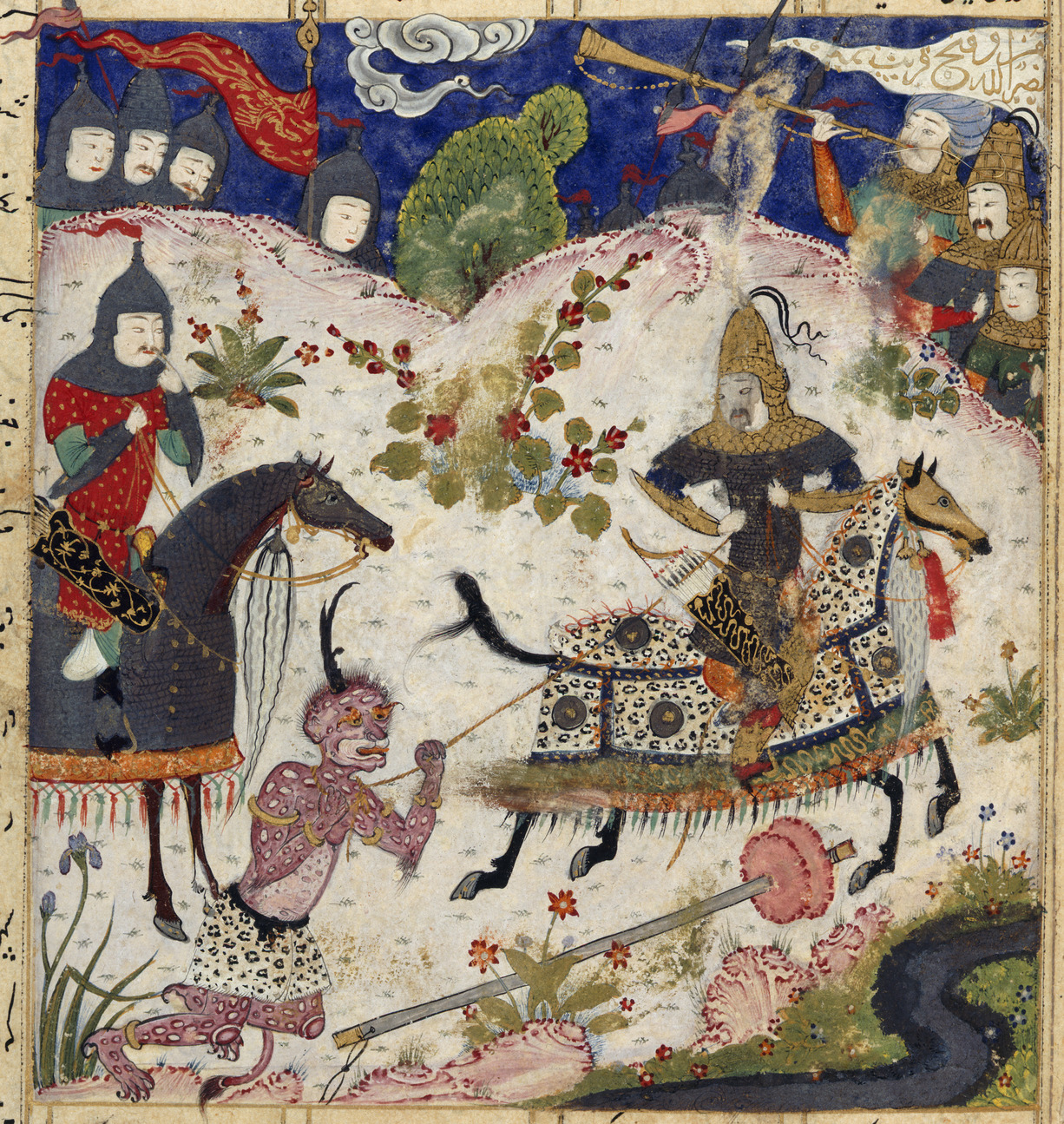The Power and Danger of Ifrits in Middle Eastern Mythology
Ifrits are one of the most well-known types of jinn, or supernatural beings, in Middle Eastern mythology. Often depicted as powerful and dangerous, they are said to possess incredible strength and intelligence and are known to cause great harm to humans who cross their paths.

The Origin and Malevolence of Ifrits in Islamic Mythology
According to Islamic mythology, jinn is created from smokeless fire and is believed to have free will and be capable of both good and evil. Ifrits are considered one of the most powerful and malevolent types of jinn and are often associated with fire and chaos.
Ifrits’ Ability to Control the Elements and Their Name’s Origins
The word “ifrit” comes from the Arabic word “afara,” which means to “throw something far away.” This is fitting, as ifrits are known to be able to manipulate and control the elements, particularly fire, and can hurl objects with great force.
The Intelligence, Strength, and Shape-Shifting Abilities of Ifrits
Ifrits are said to be incredibly intelligent and cunning, with the ability to shape-shift and move through solid objects. They are known for their incredible strength and endurance and are said to be able to lift huge boulders and carry them great distances.
Ifrits as Harbingers of Disaster and Disease in Middle Eastern Folklore
In Middle Eastern folklore, ifrits are often portrayed as dangerous and malevolent and are known to cause great harm to humans. They are said to be responsible for many of the world’s natural disasters, such as earthquakes and volcanic eruptions, and are often associated with disease and illness.
Ifrits’ Sense of Justice and Use in Magic
Despite their fearsome reputation, ifrits are also said to possess a sense of justice and are sometimes summoned by magicians and sorcerers to carry out acts of vengeance or to protect against evil spirits.

Ifrits in Popular Culture as Otherworldly, Reality-Bending Creatures
In popular culture, ifrits have been featured in many movies, books, and video games. They are often portrayed as powerful, otherworldly creatures with the ability to bend reality to their will.
Ifrits in Video Games and Books as Powerful and Cunning Spirits
In the video game series Final Fantasy, ifrits are powerful summons that can be called upon by the player to aid them in battle. In the book series The Bartimaeus Trilogy, ifrits are powerful and cunning spirits that can be summoned and controlled by magicians.
The Enduring Fascination of Ifrits in Middle Eastern Folklore
While the existence of jinn and ifrits may be purely mythological, they remain a fascinating and intriguing part of Middle Eastern folklore. Their reputation as powerful and dangerous beings has endured for centuries and continues to captivate the imaginations of people around the world.
Dive Deeper
Book Recommendation
One highly recommended book to read about Ifrits and other jinns in Middle Eastern mythology is “The City of Brass” by S.A. Chakraborty. This novel is a work of fantasy that draws heavily from Middle Eastern folklore and tells the story of a young woman named Nahri who discovers she is a powerful healer with the ability to summon and control jinn. The book offers a fascinating and detailed portrayal of jinn culture and mythology, including the role of Ifrits as powerful and dangerous supernatural beings. The story is engaging, the characters are complex, and the world-building is rich and immersive. It is the first book in the “Daevabad Trilogy,” and has received widespread critical acclaim.
Documentary/ Video
There are several documentaries that explore jinn and Ifrits in Middle Eastern mythology, but one highly recommended documentary is “Jinn” (2018) by director Nijla Mu’min. This documentary explores the concept of jinn and their place in modern Muslim culture, as well as their historical origins in Islamic folklore. It includes interviews with scholars, theologians, and everyday Muslims, who discuss their beliefs and experiences with jinn. The documentary also delves into the ways in which jinn has been represented in popular cultures, such as in movies, TV shows, and video games. While the documentary is not solely focused on Ifrits, it provides a fascinating and comprehensive look at the world of jinn and its cultural significance in the modern Middle East.
If you found this article engaging, you may want to check out this other piece – “The Curse of Kuldhara: A Haunting Story from Rajasthan”
